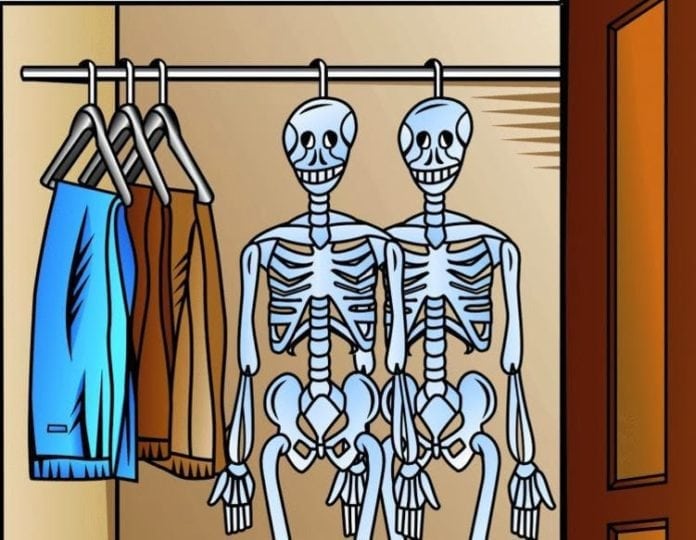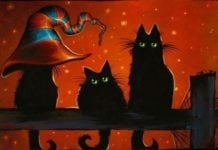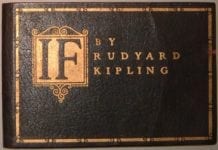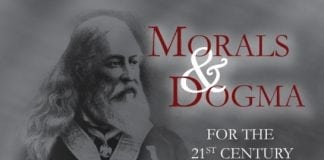A Dead Ringer – is a well-known phrase for somebody who looks just like another.
In medieval Britain the medical profession was not quite as refined as it is now, and often anybody found not to be breathing was regarded as dead, when they may have been simply unconscious. (And this was also before comas were fully understood).
It was not uncommon for bodies to be later exhumed and corpses found with their fingers worn to the bone, an obvious indication somebody had returned to life and tried to claw their way out of a coffin.
So horrific was this image that the English gentry began mistrusting medical opinions and buried their loved ones with string attached to their wrists, connected to a bell above the grave.
Anybody who returned to life and found themselves prematurely buried could attract attention by ringing the bell and it has been recorded this actually worked.
Many ‘bodies’ were exhumed after bells were rung and some people carried on with their normal lives.
But when spotted in the street startled acquaintances would cry to each other ‘That looks just like ‘Jack Jones’ – I thought he was dead’ to which they would receive the reply, ‘Yes, he must be a dead ringer’.
And that, believe it or not, is true.
The Graveyard Shift is the time a person works when the workplace is at its quietest. Usually this is overnight, although it can be at other times of minimum activity, such as in restaurants and bars on a Monday lunchtime.
The phrase was used widely during the Second World War when it was applied to the nightshift workers in the munitions factories.
Since then, the phrase has been applied to other trades and professions. Journalists and news broadcasters have a ‘graveyard shift’, for example, which is often simply manning the phones overnight should any big news story break.
The original graveyard shift was the job of the overnight guards in the quiet cemeteries who were on the look-out for grave robbers or even a Dead Ringer
To have a Skeleton in the Cupboard is to have a shameful secret hidden away. It is certainly possible that the actual discovery of a skeleton in a cupboard may provide the origin of the phrase, but it is more likely to come from the study of human anatomy.
Up until 1832, it was illegal to dissect a human body for the benefit of medical research, but of course many a physician still did, leading to suggestions that they hid their skeletons in surgery cupboards.
It is also true that after the of dissecting bodies became legal, grave robbers would dig up newly buried corpses and sell them to unscrupulous doctors in an underhand way.
This practice was so frowned upon that the medical men would try to keep their secrets hidden away in locked cupboards.
The phrase first appeared in print in 1845 in an article in Punch, written by the novelist William Makepeace Thackeray, and again in his book The Newcomes (1855), which includes the line:
‘And it is from these that we shall arrive at some particulars regarding the Newcomes family, which will show us that they have a skeleton or two in their closets as well as their neighbours.’
It has been part of the English language ever since. – Albert Jack
Albert Jack AUDIOBOOKS available for download here

Shaggy Dogs & Black Sheep





































